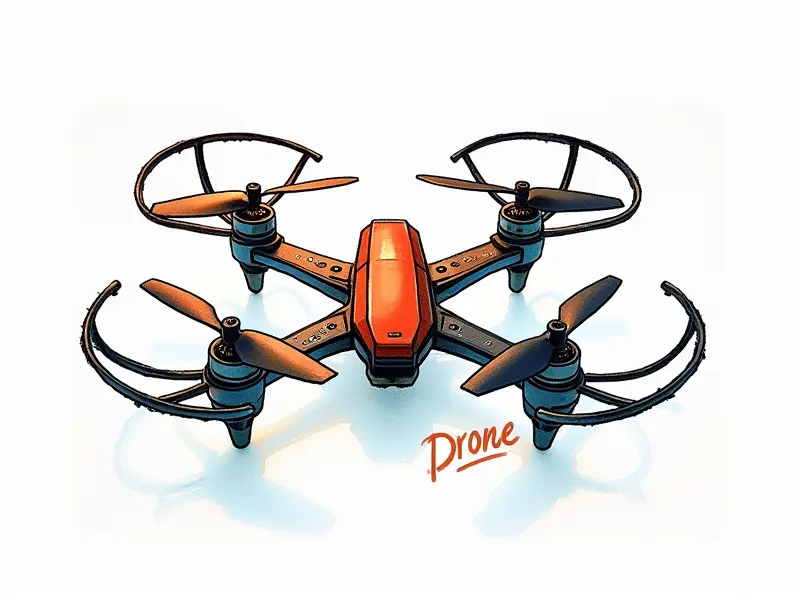Is it legal to use drones?

Drones, also known as unmanned aerial vehicles (UAVs), have become increasingly popular in recent years. They offer a range of applications from photography and videography to commercial use and hobbyist activities. However, the legality of using drones varies significantly depending on your location and intended purpose. This article will explore drone laws across different regions, focusing particularly on the United States.
Are RC Drones Legal in the USA?
In the United States, the Federal Aviation Administration (FAA) regulates the use of unmanned aircraft systems (UAS), commonly referred to as drones. The FAA's rules are designed to ensure safety and security while allowing for recreational and commercial drone usage.
Drone Laws: What You Need to Know
The FAA has established specific regulations for both hobbyists and commercial operators. Understanding these laws is crucial before flying a drone in the USA:
- Hobbyist Operations: Individuals operating drones for recreational purposes must comply with Part 107 of the Federal Aviation Regulations (FAR).
- Commercial Use: Businesses using drones for commercial activities, such as aerial photography or delivery services, need to obtain a Remote Pilot Certificate from the FAA.
Can I Legally Fly My Drone Here?
The legality of flying your drone depends on several factors including location, altitude, and purpose. For instance, you cannot fly drones over sensitive areas such as airports or military bases without prior authorization.
Understanding Drone Regulations Today
Drones are subject to a variety of regulations beyond just FAA rules. Other considerations include:
- No-Fly Zones: The FAA maintains a database of no-fly zones where drone operations are prohibited due to security or safety concerns.
- National Parks and Wildlife Refuges: Flying drones in these areas is often restricted or banned entirely to protect wildlife and preserve natural habitats.
Navigating Drone Law and Policy
To navigate the complex landscape of drone regulations, it's essential to stay informed about local laws as well. Many cities have enacted their own ordinances governing drone use within municipal boundaries.
Is Flying Drones Illegal Where You Live?
The legality of flying drones varies widely from state to state and city to city in the USA:
- New York City: Strict regulations apply, including obtaining a permit for commercial flights over certain areas.
- Hawaii: Prohibitions on flying drones near beaches and wildlife reserves are common due to conservation efforts.
The Basics of Drone Legislation
The basics of drone legislation typically include requirements such as:
- Licensing: Commercial operators must be licensed through the FAA.
- Registration: Recreational users are required to register their drones with the FAA.
Are RC Aircraft Legal in My City?
To determine if your city allows RC aircraft, you should check local ordinances and consult with municipal authorities. Many cities have specific rules regarding noise levels, flight paths, and operating hours.
Drones Rules & Regulations Explained
Understanding drone regulations involves knowing:
- Height Limits: Drones must not fly above 400 feet (122 meters) unless authorized by the FAA.
- No-Operation Times: Certain times of day, such as during nighttime flights, may be restricted in urban areas to minimize disturbances.
Can I Fly My Drone Legally?
To legally fly your drone, you must adhere to the following steps:
- Register Your Drone: Register with the FAA if you are a recreational user.
- Obtain Certification: For commercial use, obtain a Remote Pilot Certificate from the FAA.
What Are the Drone Laws Now?
The current state of drone laws continues to evolve as technology advances and new applications emerge. Staying up-to-date with the latest regulations is crucial for both hobbyists and professionals alike:
- New Technologies: As drones become more sophisticated, so do the rules governing their use.
- Public Safety Concerns: There are ongoing debates about privacy rights versus public safety measures.
Conclusion
In summary, while the general framework for drone regulations exists at a federal level in the USA through the FAA, local laws and ordinances can significantly impact your ability to fly drones legally. Always check with both national and local authorities before taking flight to ensure compliance and avoid penalties.

